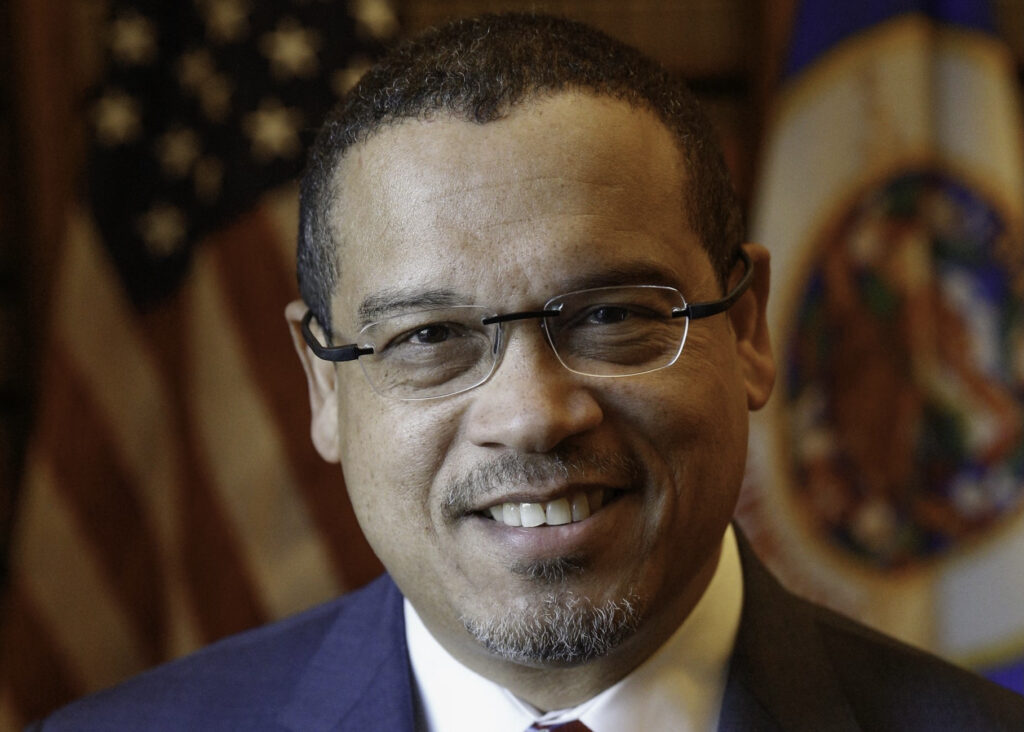“For more than 40 years, ICWA has been an important way for America to affirm that Native families, culture, and sovereignty matter,” Ellison said in a press release about the brief.
Minnesota Attorney General Keith Ellison and 23 other state attorneys general urged the U.S. Supreme Court in an amicus brief to reject a challenge to the Indian Child Welfare Act, which protects the sovereignty of Native American children, their families and tribal communities.
The case, Haaland v. Brackeen, was brought in 2017 by a white Texas couple, who sued in a federal district court in Texas after the Navajo Nation intervened under the Indian Child Welfare Act to object to their attempt to adopt a Navajo child. The district court found the law unconstitutional, and the U.S. Court of Appeals for the 5th Circuit twice reversed the district court’s decision.
Other plaintiffs joined the case — including Danielle and Jason Clifford, a Minnesota couple who were blocked from adopting a foster child that lived with them. The child was later adopted by their grandmother.
The Supreme Court will hear arguments in November weighing whether the Indian Child Welfare Act of 1978 discriminates on the basis of race and whether Congress overstepped its authority when it enacted the law.
The Indian Child Welfare Act established federal minimum standards for the removal of Native American children from their homes and prioritized the placement of children into homes of extended family members and other tribal homes — homes that could reflect the values of Native American culture.
The law was adopted in response to the problem of unwarranted removals of Native American children from their homes. Many of these removals, according to the brief, were “often made without good cause and sometimes reflected bias against the Indian families’ tribal heritage and customs.”
Removals in Minnesota were prevalent. According to the ICWA Law Center, a Minneapolis-based nonprofit, in the early 1970s, 13% of all American Indian children were in adoptive homes and 90% of those placements were in non-Native homes. The removals had negative impacts on the children, who were cut off from their families and culture.
“For more than 40 years, ICWA has been an important way for America to affirm that Native families, culture, and sovereignty matter,” Ellison said in a press release about the brief. “I’ve intervened in this case before, and am doing so again, because it’s my job to help everyone live with dignity, safety, and respect — no exceptions.”
Minnesota Native children were placed in foster care 16 times more than non-native children, according to the National Indian Child Welfare Association.
Ellison previously issued two briefs in the case: One in 2019 asking the 5th Circuit to overturn the lower court’s decision and another in 2021 asking the Supreme Court to hear the case.
The brief argued that the Indian Child Welfare Act does not violate equal protection law because a person’s legal connection to a Native tribe is political rather than racial in nature.
The coalition also said that the law is critical for protecting Native American children and fostering relations between Native American tribes and the government. It said the law is a valid exercise of Congress’s powers over tribal affairs.
“Because ICWA concerns a matter of the utmost importance to tribal relations — the ability of Tribes to sustain their existence by raising children who are connected to their tribal communities — Congress did not exceed its enumerated powers in enacting the statute,” the brief read.
The post Attorney General Ellison urges U.S. Supreme Court to uphold Indian Child Welfare Act appeared first on minnesotadigest.com.
